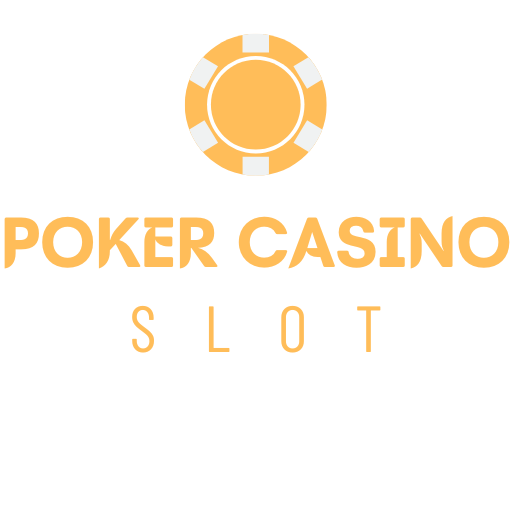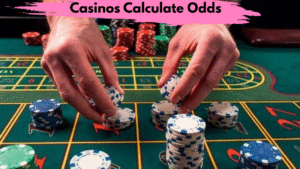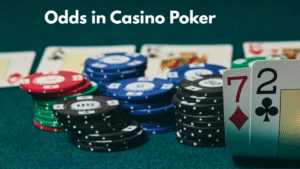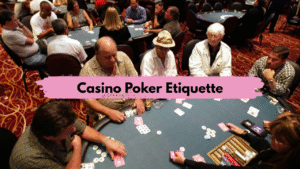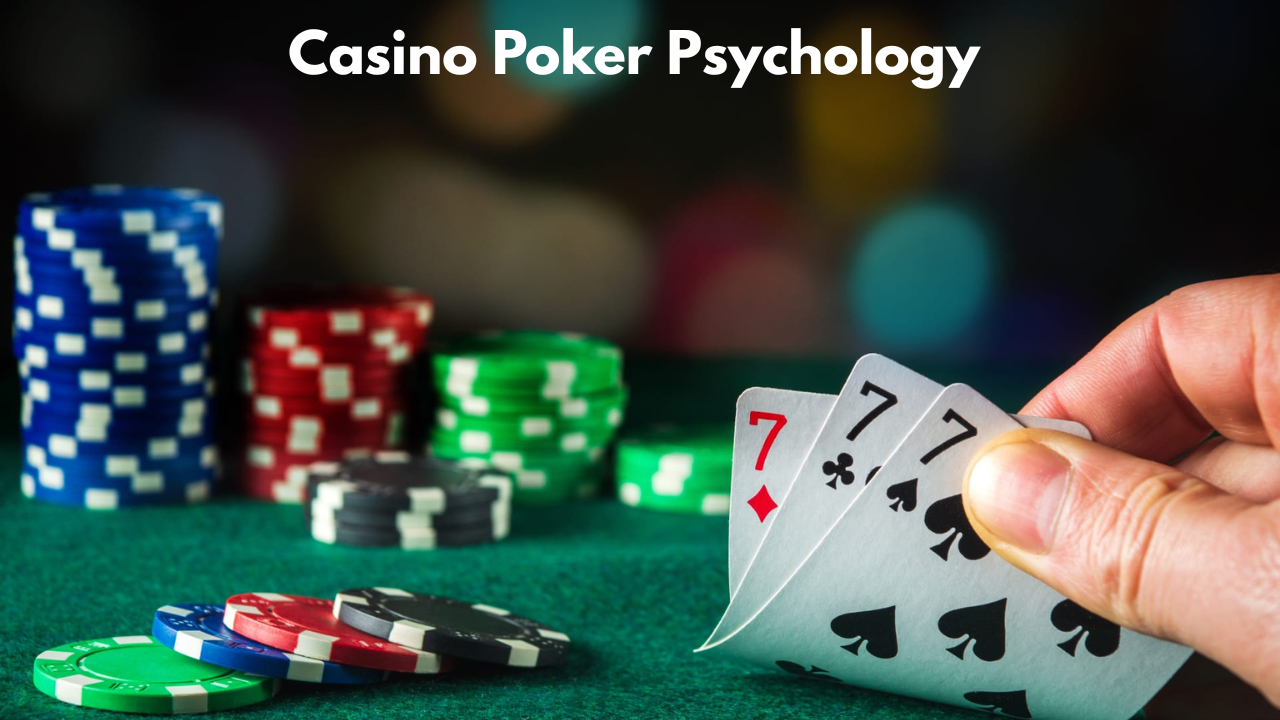
Casino Poker Psychology is not just a card game: it is a game of people, patience and above all emotions. Many players think that success depends only on strategy and happiness, but the truth is that your mood can do or break your performance at the table.
Whether you are in a buzzing casino or play Casino Poker Psychology with strangers from all over the world, poker psychology is the invisible card you always keep. We immerse ourselves in depth in the way emotions influence your game, and in particular the way you can stay under control.
Because emotions are important in Casino Poker Psychology
Have you ever heard the expression: “Poker is 90% of mental cards and 10%”? There is a lot of truth in it. Unlike slot machines or roulette, poker puts you against other players, not just happiness. This means that your mentality immediately influences your decisions.
End, impatience, unconsciousness or fear can obscure your judgment faster than a bad rhythm. The best poker professionals are not only skilled in reading cards, but they are masters in reading and managing emotions.
Understand “inclined” – the silent enemy
In Poker -Lingo, “Tilt” refers to the loss of emotional control after a frustrating hand. Maybe you got out of a pot with a strong couple or an opponent. Tilt makes you angry, impulsive and ruthless.
Imagine it like street rage. A small error by another driver can trigger an emotional spiral and hit the gas instead of driving safely. In poker Tilt has the same effect: your brain wants revenge, but your wallet pays the price.
Ordinary emotions players struggle
Poker is a pressure stove of emotions. Here are the usual suspicions: Casino Poker Psychology
Anger: the loss of large vases can make you chase the losses.
Fear: Fear of losing, you can prevent you from making bold movements.
Greed: persecute huge often counterproductive victories. Avermoed: the winning stripes can mislead you in carefree decisions.
Frustration: long dry spells can eat patience.
Do they seem known? The truth is that every player fights against these emotions – is the way he faces him that separates and amateur.
The power of emotional discipline
Casino Poker Psychology does not concern the elimination of emotions, it is about controlling them. Emotional discipline helps you:
Stay under pressure.
Logically think instead of emotional.
Avoid impulsive bets that empty your bankroll.
Recognize the emotional states of opponents and use them.
It is not a question of becoming a robot – it is a question of becoming the most composed player of the table.
Practical tips to control your emotions
How do you really manage your emotions when operations are high? Let us break it:
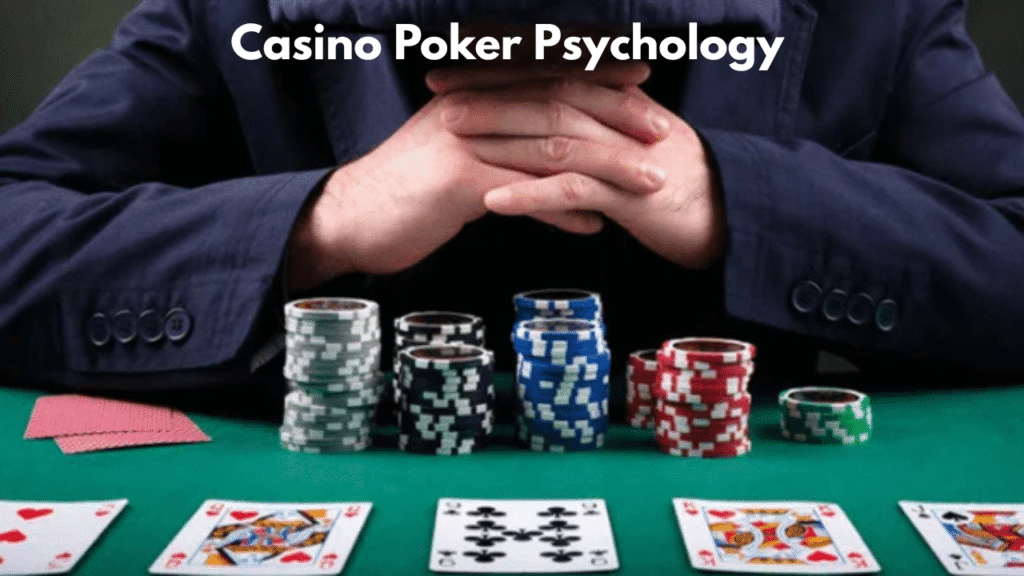
Attach a clear budget before playing
Never play money that you cannot afford to lose. A defined bankroll also keeps you on the ground after difficult losses.
Take breaks
If you feel frustrated, get away from it. Even a five -minute walk can reset your mind.
Practice mindfulness
Simple breathing exercises or short meditations can help you stay calm and focused.
Loosen the result
Instead of being obsessed with victories or losses, focused on making the right decisions. Over time, the results will balance themselves.
Recognize lifts in advance
Faster known that you are in inclination, faster you can stop the damage. Some players have even established a rule: if they lose three big hands in a row, they leave the table.
Read the feelings of adversaries
Casino Poker Psychology is not only to check you, but also to look at others. Body language, Paris models and timing show all emotions.
A trembling hand can point out nervousness.
Quick bets often show confidence or bluffs.
Long ruptures could mean indecision. By checking your emotions, you will find easier to recognize when others lose control.
Casino Poker Psychology: another psychological struggle
You might think that online poker removes the psychological aspect because you cannot see the faces of the opponents. But the mental game is still alive – it moves alone.
You have to read online models instead of body language. How often do they bet? Do they bend easily? Do they play aggressive after losing?
And here is the difficult part: online poker makes it easier to fall into emotional traps because it is often played at longer sessions without pauses.
Because patience is your biggest weapon
Patience may seem boring, but in poker it is golden. Most players lose money because they become restless and play too many hands. Experts, on the other hand, know when to fall back and wait for the right time.
It’s like fishing – sometimes you have to wait for hours for the perfect intake. If you throw your line too often, it only scares fish.
The role of confidence in poker
Confidence is a double edition sword. A healthy dose helps you make courageous and strategic movements. But Superconscient dazzles at risk. The best players are balanced – they trust their skills, but never underestimate their opponents.
How to build mental resistance
Just as athletes cause their bodies, Casino Poker Psychology players must lead their thoughts. The construction of resilience means:
Accept losses as part of the game.
Concentration on long -term results, not on individual hands. Development of routines that keep emotions in failures.
With practice, your mental strength becomes your greatest advantage at the table.
Read More: Understanding the Odds in Casino Poker
Conclusion
Basically, Casino Poker Psychology is a battle of heads, not just cards. The strongest hand does not always win – but often the strongest way to think. By learning to face the tendency to stay patient and build emotional resilience, you will not only improve your game, but you will benefit more.
